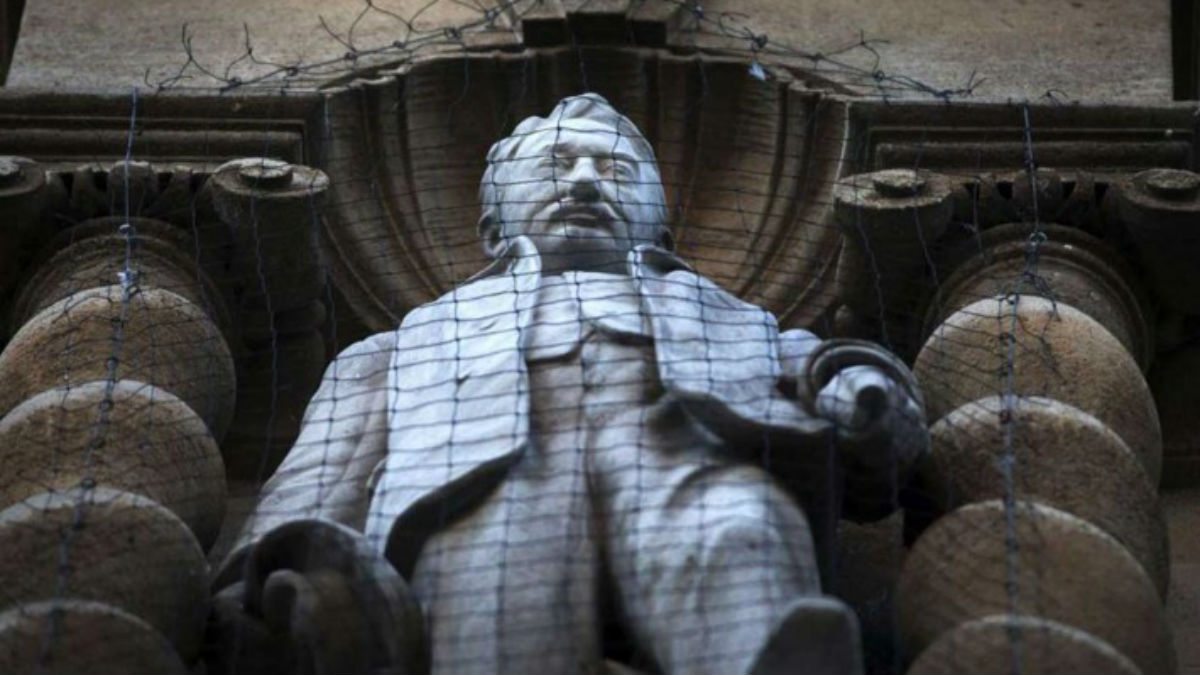Cecil Rhodes statue will stay at Oxford's Oriel College
Leaked report suggests furious donors threatened to write college out of their wills

A free daily email with the biggest news stories of the day – and the best features from TheWeek.com
You are now subscribed
Your newsletter sign-up was successful
A student-led campaign to have a statue of Cecil Rhodes removed from the grounds of Oriel College, Oxford, has been rejected after angry donors reportedly threatened to write the college out of their wills.
The campaign claimed the 19th century politician, who was the college's biggest benefactor, was an ardent imperialist whose actions in southern Africa paved the way for apartheid.
However, a consultation by the university revealed "overwhelming support" for the statue to remain.
The Week
Escape your echo chamber. Get the facts behind the news, plus analysis from multiple perspectives.

Sign up for The Week's Free Newsletters
From our morning news briefing to a weekly Good News Newsletter, get the best of The Week delivered directly to your inbox.
From our morning news briefing to a weekly Good News Newsletter, get the best of The Week delivered directly to your inbox.
"Following careful consideration, the college's governing body has decided that the statue should remain in place and that the college will seek to provide a clear historical context to explain why it is there," the university said.
According to a governors' report leaked to the Daily Telegraph, wealthy alumni were furious about the "shame and embarrassment" caused by the 690-year-old college's "dithering" over the issue.
Oriel reportedly now fears that if the statue is taken down, they will lose out on future gifts and bequests, including a proposed £100m to be left to the college in the will of one donor.
However, a spokesman told The Guardian that financial implications were not the primary consideration in the decision to keep the statue.
A free daily email with the biggest news stories of the day – and the best features from TheWeek.com
There have also been accusations of hypocrisy towards Ntokozo Qwabe, the leader of Oxford's Rhodes Must Fall campaign, who is himself a beneficiary of the Rhodes scholarship. In response, the student said he was "no beneficiary" of Rhodes as the money was the result of looting.
"I'm a beneficiary of the resources and labour of my people, which Rhodes pillaged and slaved," he said.
Writing in the Times Literary Supplement, classicist Mary Beard urged students to draw strength from the statue and others like it.
"The battle isn't won by taking the statue away and pretending those people didn't exist," she said. "It's won by empowering those students to look up at Rhodes and friends with a cheery and self-confident sense of unbatterability."